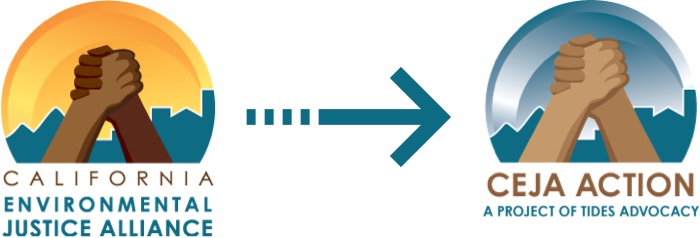IPCC Report Shows Urgent Need to Zero Out Fossil Fuels, Reduce Direct Emissions
August 17, 2021
For Immediate Release
Contact:
Isa Flores-Jones, isa@caleja.org
Neena Mohan, neena@caleja.org
IPCC Report Shows Urgent Need to Zero Out Fossil Fuels, Reduce Direct Emissions
Lawmakers, regulators must invest in community climate resilience and fossil fuel phaseout
August 17, 2021 – Last week, the UN Intergovernmental Report on Climate Change (IPCC) published their new Sixth Assessment Report. The document is the scientific consensus of more than 234 authors from 66 countries, drawing on 14,000 studies to confirm that zeroing out our greenhouse gas emissions is urgent and necessary to limit warming levels to 1.5 or 2 degrees Celsius within the next two decades.
“As lawmakers return to Sacramento this week to continue negotiations for critical state funding and the Air Resources Board crafts the blueprint for California’s climate policy, we urge our state decisionmakers to reject false solutions and legislate boldly for our climate future and the well-being of frontline communities,” said Raquel Mason, CEJA’s Policy Manager.
Every fraction of a degree in warming is critical to save human lives and improve health and well-being, the IPCC finds. While fossil fuel use has locked in heatwaves, droughts, and extreme weather events for future generations, the IPCC’s report provides a mandate to policymakers to work quickly and decisively to directly reduce greenhouse gas emissions. The report pinpoints large industrial sources, such as refineries, power plants and dairy farms as some of the main drivers of climate change. Refuting the assurances of big agriculture, the report also finds that methane emissions have played a key role in exacerbating the climate crisis.
“The 2021 IPCC report comes as no surprise to communities feeling the immediate impacts of the crisis – and should not be used to justify more investments in polluting false solutions in any sector,” said Veronica Garibay, with Leadership Counsel for Justice and Accountability. “For the Valley farmworker working through the smoke of multiple wildfires and for communities who are drinking water polluted by nitrates, it’s clear: the crisis is now. We cannot continue to invest Californians’ dollars in false climate solutions like dairy digesters that extend the life of the fossil fuel industry while also propping up a highly polluting and unsustainable farming industry. Investments in environmental justice priorities like community resilience centers, Transformative Climate Communities, the Low-income Weatherization Program (LIWHP), and community protections from pesticide exposure must be part of our resilience planning.”
For decades, advocates in the environmental justice movement have voiced the need to cut pollution and emissions directly at the source. The IPCC report endorses a shift away from fossil fuels to avoid substantial increases in extreme climate events.
“We need to speed up California’s timelines to cut emissions by 2030. The health of frontline communities and our planet calls for the phasing out of oil, gas, methane and coal,” said Martha Dina Arguello with Physicians for Social Responsibility Los Angeles. “We have no time to waste on false solutions that continue to put the health and safety of low income communities living in sacrifice zones. carbon capture and sequestration is a perverse pipe dream that extends the life of fossil fuel, by giving more pubic dollars to an irresponsible industry that does not care that this technology will increase cumulative air pollution burdens while crowding out real solutions.”
This September, an advisory committee of environmental justice advocates including the California Environmental Justice Alliance are pushing the California Air Resources Board (CARB) to reject false solutions and center equity in the upcoming blueprint for California climate policy, the 2022 Climate Change Scoping Plan. CEJA’s recommendations are supported by the IPCC’s recommendations to prioritize reducing pollution from large industrial sources and phase out fossil fuels.
Last week, the California State Senate sent a letter to CARB detailing priorities for the Scoping Plan. The letter specifically criticizes the Air Resources Board’s prior approach to reducing pollution from large industrial sources: “it should not have designated cap-and-trade as a “direct emission reduction measure” and should not do so again.” There is growing consensus that the state must revisit its climate policy, not only to center equity, but we must address air pollution and not so myopically focus only on carbon.
“California has long touted itself as a leader in policy to confront the climate crisis. Frontline advocates hope that the Air Resources Board will boldly plan to phase out refineries and zero out oil and gas in California,” said Neena Mohan, member of the Environmental Justice Advisory Committee to CARB. “There’s no room for false solutions like carbon capture and sequestration at the center of our state’s climate blueprint. And as our communities face wildfires and heatwaves, we should invest our state budget in community resilience – not delay tactics like biofuels and other ‘near-zero’ solutions.”
“The latest IPCC report confirms that there is no future for fossil fuels,” said Dan Ress, staff attorney for the Center on Race, Poverty & the Environment. “Only by quickly and thoughtfully transitioning away from fossil fuels and toward renewable energy without false solutions can our society survive the existential threat of climate change. During this transition, we must center frontline communities in decision-making and reverse decades of environmental injustice rather than doubling down on existing inequities.”
#####

